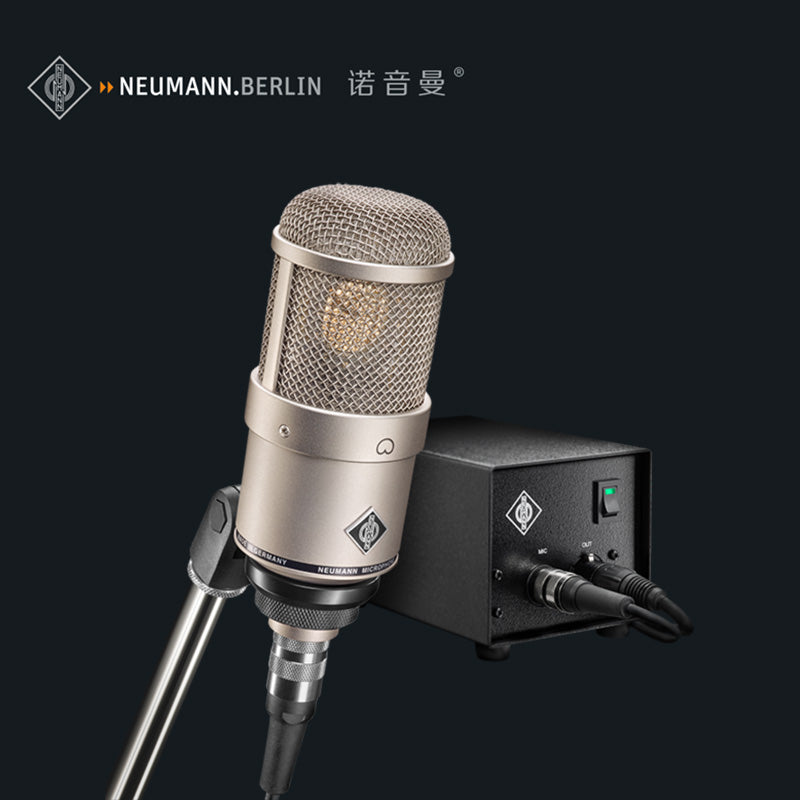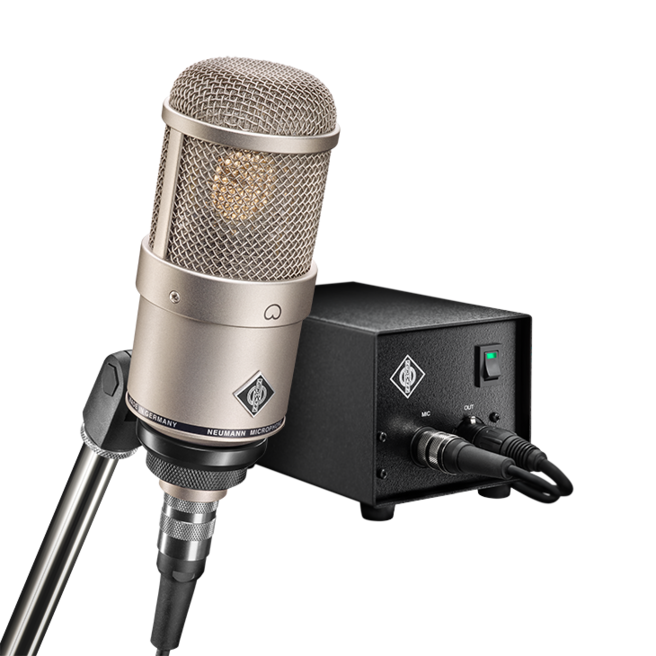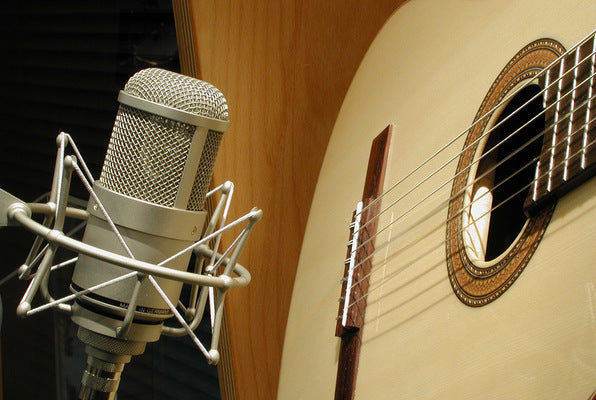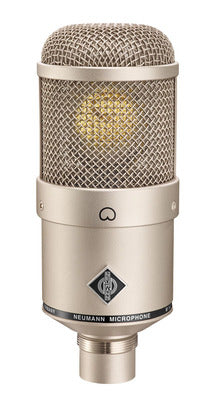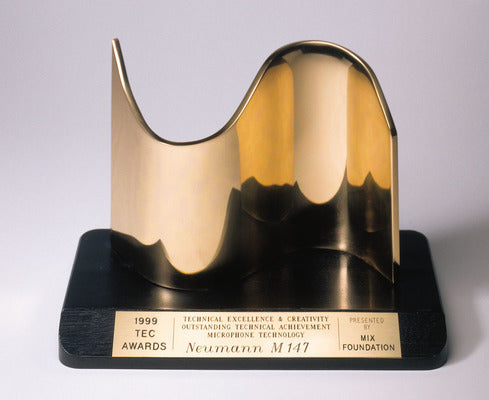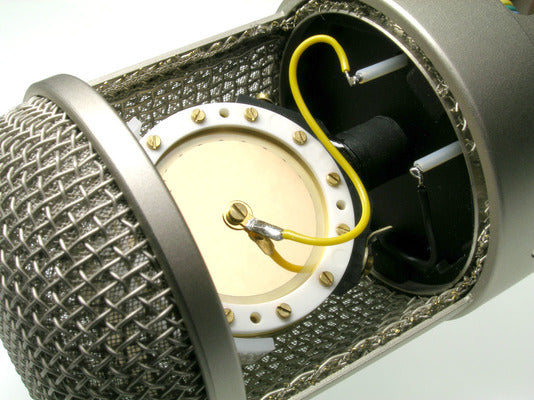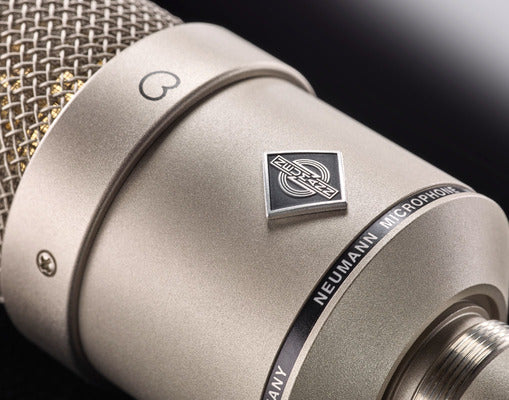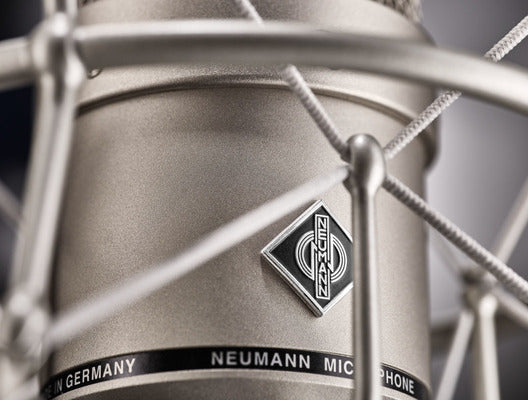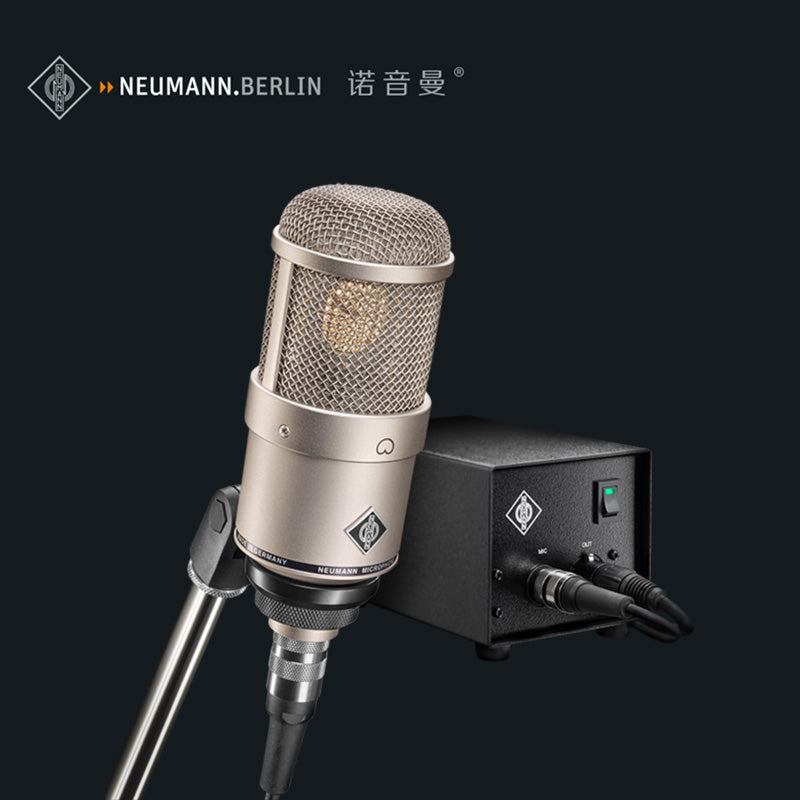
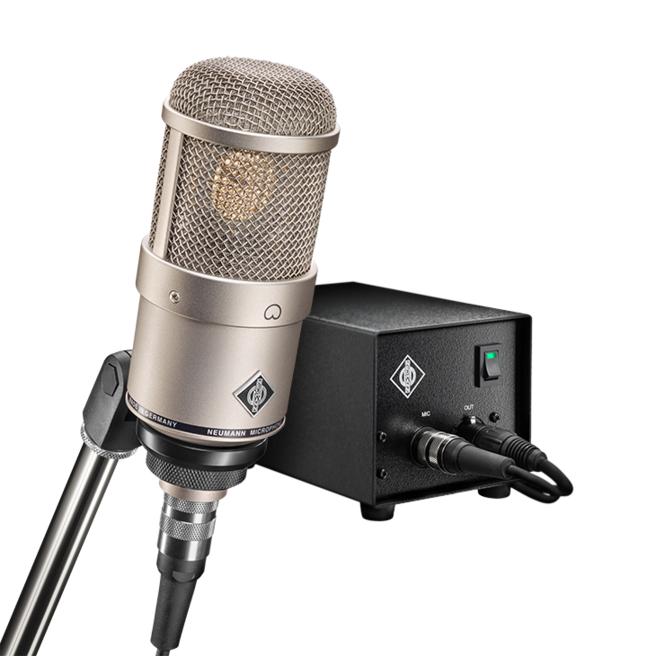
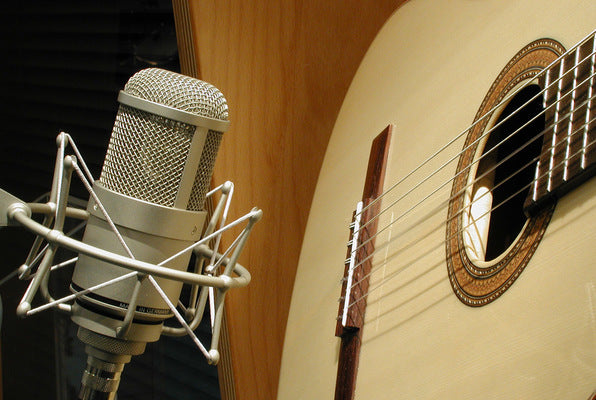
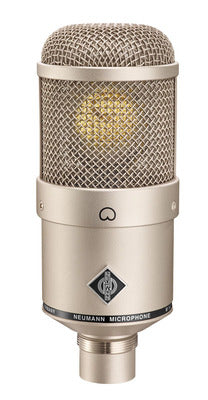
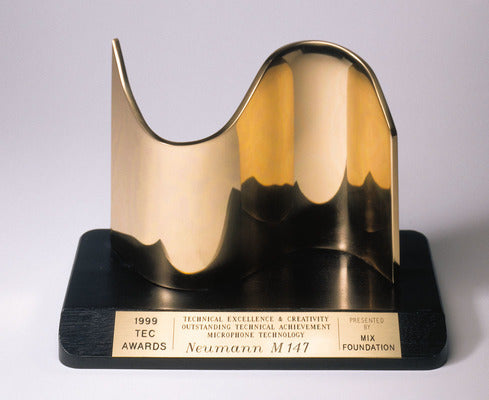
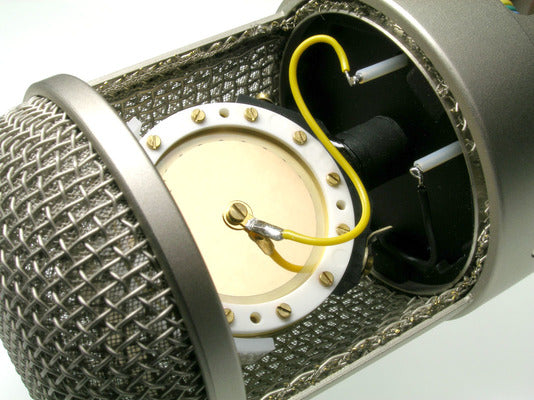
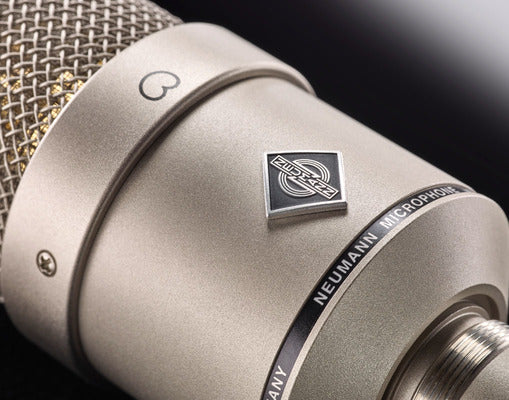
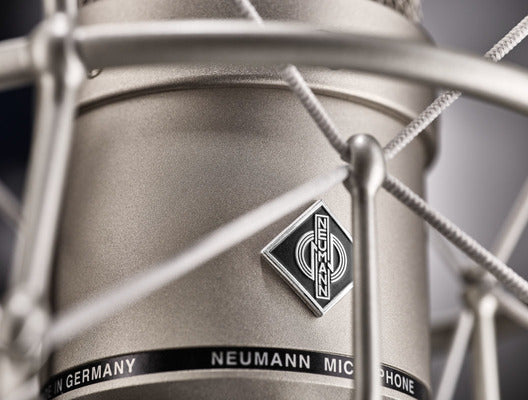
Collapsible content
Description
A Classic Tube Microphone for the 21st Century
The M 147 Tube brings back the classic sound of Neumann’s famous tube microphones of the 1950s. The M 147 tube is a cardioid microphone using the same large diaphragm capsule as the legendary U 47 but combines it with an innovative tube circuit for lowest noise. Its transformerless output stage ensures superb performance at an attractive price.
Vintage Sound with Modern Muscle
With digital recording and ultra-clean processing, many engineers find themselves looking for tube microphones to reinstate a more “analogue” sound character. The Neumann M 147 is a tube microphone specially designed for 21st century recording chains. Its acoustic design is inspired by the legendary U 47, which revolutionized studio recording in the 1950s with its superior sound quality and is still used daily in top studios around the world. The head amplifier of the M 147 combines classic tube circuitry with an advanced solid state output stage for vintage sound with a modern punch.
The headgrille of the M 147 is more than a visual statement: It is a slightly more compact version of the iconic U 47 capsule head, partly responsible for its legendary sound. Even more importantly, it shares the same sound transducer, the classic K 47 large diaphragm condenser capsule, known for its exceptional combination of warmth and presence. The capsule signal is amplified by a classic tube circuit using a specially selected subminiature triode. While vintage microphones relied on large and expensive audio transformers for the final impedance conversion, the M 147 uses a state-of-the-art transformerless solid state output stage, which allows for long cable runs up to 300 m without transmission losses and ensures a very direct sound with unrestricted bass response.
Applications
The M 147’s unique sound character with unsurpassed presence and a distinctive midrange focus is ideally suited for vocals, both male and female, as well as speech applications such as voice-over and film dubbing. The M 147 is also an excellent spot mic for any solo instruments. Unlike many other tube microphones, the M 147 can be used for quiet sources, due to its exceptionally low self-noise of only 12 dB-A. Although its max SPL figure of 114 dB appears low, the M 147 works well with louder sources, too, as distortion rises very slowly to 5% THD for 134 dB SPL. This behavior is intentional: The M 147 creates a sense of elevated loudness by means soft saturation – just like in the days of analog recording.
- Same K47 capsule design as the legendary Neumann U 47
- Cardioid pattern
- Classic sound with unmatched presence
- Tube circuit with extremely low self-noise
- Transformerless output stage
- Comes with power supply
Data and Diagrams
| Acoustical operating principle | Pressure gradient transducer |
|---|---|
| Directional Pattern | Cardioid |
| Frequency Range | 20 Hz ... 20 kHz |
| Sensitivity at 1 kHz into 1 kohm | 20 mV/Pa |
| Rated Impedance | 50 ohms |
| Rated load impedance | 1 kohms |
| Equivalent noise level, CCIR¹⁾ | 24 dB |
| Equivalent noise level, A-weighted¹⁾ | 12 dB-A |
| Typical SPL (tube characteristic) for K<0.5% 3²⁾ | 114 dB |
| Typical SPL (tube characteristic) for K<5% 4²⁾ | 134 dB |
| Signal-to-noise ratio, CCIR (re. 94 dB SPL)¹⁾ | 70 dB |
| Signal-to-noise ratio, A-weighted (re. 94 dB SPL)¹⁾ | 82 dB |
| Maximum output voltage | 8 dBu |
| Dynamic range of the amplifier, DIN/IEC 651, for THD < 0.5%²⁾ | 102 dB |
| Dynamic range of the amplifier, DIN/IEC 651, for THD < 5%²⁾ | 122 dB |
| Power supply | N 149 A |
| Matching connector | Microphone: DIN 8 F, Power Supply: XLR 3 F |
| Weight | 460 g |
| Diameter | 57 mm |
| Length | 142 mm |
1) according to IEC 60268-1; CCIR-weighting acccording to CCIR 468-3, quasi peak; A-weighting according to IEC 61672-1, RMS
3) measured as equivalent el. input signal
Diagrams
Cardioid M 147 Tube



